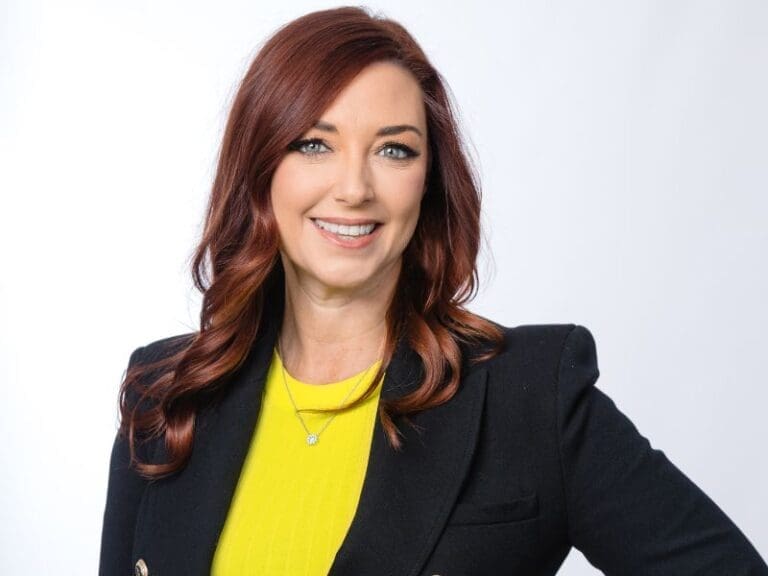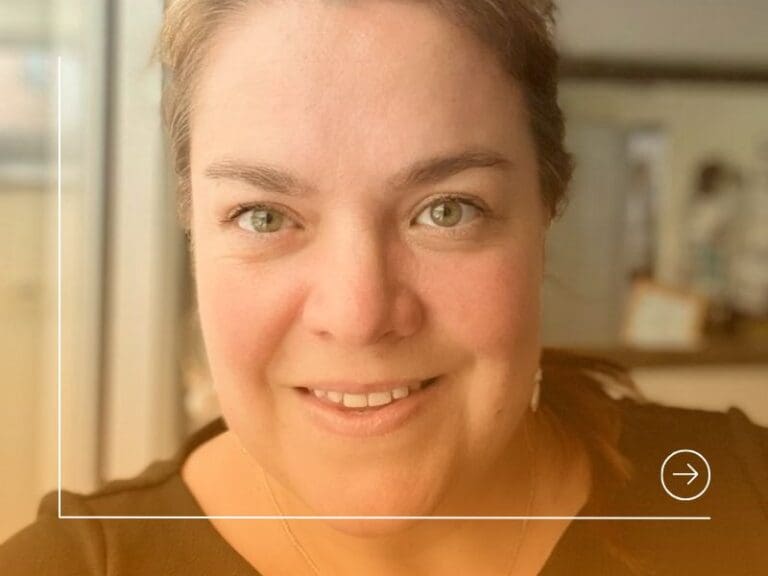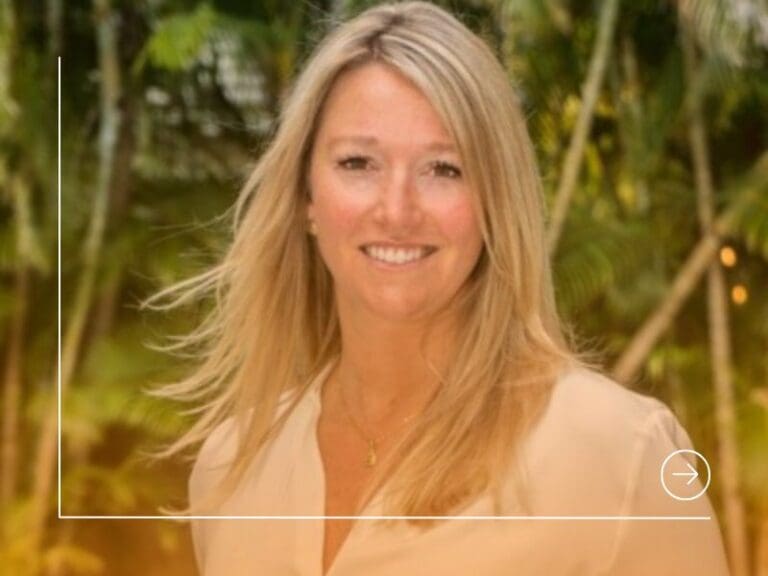Brooke Cunningham is Chief Marketing Officer at LogicMonitor, the leading SaaS-based hybrid observability platform powered by AI.
She leads the company’s global marketing strategy and organization, with a focus on building for scale, driving measurable growth, and showcasing LogicMonitor as a category leader in AI and observability.
With more than 25 years experience in B2B software, Brooke has built her career at the intersection of data, analytics, and IT operations. She is recognized for transforming marketing into a strategic growth engine, pioneering outcome-based models that directly align with business results, and accelerating partner-led growth across global ecosystems.
A three-time CMO, Brooke has held executive roles at inriver and Datto – where she played a key role in its $6.2B acquisition – as well as senior leadership positions at SAP, Qlik, and Splunk, where she contributed to revenue growth from $650M to over $2.5B.
Since joining LogicMonitor in 2024, Brooke’s marketing leadership has driven record performance, influencing more than 60% of company bookings. Across her career, she has emphasized joint success with partners, operational transformation, and enabling organizations to scale for long-term impact.
How did you land your current role? Was it planned?
My career path has been a mix of strategic intention paired with openness to opportunity. I’ve always been focused on choosing roles where I can be at the forefront of innovation, scale go-to-market teams and create measurable impact; however, I wouldn’t say I followed a rigid plan. I always wanted each next role to provide a challenge and career progression either in seniority or breadth of scope – or even, better- both!
After serving as CMO at Datto and then inriver, I was looking for an opportunity to drive growth at scale again—this time at the intersection of AI and observability.
When LogicMonitor approached me, the timing felt right. The company was entering an exciting new phase of growth, and I saw the potential to transform marketing into a growth engine. Since joining, I’ve focused on building an outcome-based marketing model, which has already contributed to a record 60%+ of company bookings—the highest marketing contribution in LogicMonitor’s history. It wasn’t “planned” in that sense, but the opportunity was a great fit given that it was exactly the kind of challenge I’d been preparing for.
What are the key roles in your field of work, and why did you choose your current expertise?
Marketing in tech covers a wide spectrum: brand awareness and communications, product and solutions marketing, demand generation, plus event, field, partner and customer marketing. All of which is supported by a lot of technology and operational mechanics. The CMO role is about connecting all of those elements for a coordinated impact. I love the cross functional elements of Marketing, spanning creativity through to data and metrics.
I often tell my team that the real step change in performance happens when the marketing mix works in concert. Each channel on its own can deliver value, but when campaigns are timed effectively, targeting is sharp, calls to action are clear, and messaging is aligned across touchpoints, the impact compounds. That’s when the results become greater than the sum of the parts—brand awareness accelerates, reach expands, and demand generation conversion rises. It’s not about isolated tactics; it’s about orchestration that creates momentum and amplifies outcomes.
That mix of building for scale while fostering collaboration is what drew me to this expertise, and it’s also what keeps me energized.
Did you (or do you) have a role model in tech or business in general?
I had role models in my family growing up, as we had a family-run business in the international shipping industry that my grandfather, father, aunts and uncles all served as executives. This gave me early exposure to hard work, leadership, as well as how various departments work together.
I also had so many amazing leaders that gave me my first opportunities in the tech industry who were willing to invest in me and mentor me. Heidi Rolston was the leader at Seagate Software that gave me my very first role coming out of university. I still have the job offer letter she presented me, as a reminder of that opportunity that helped get my start, as well as how far I’ve come. Plus, I still count Heidi amongst the many leaders in my close valued network that I am still in contact with, 27 years later!
What are you most proud of in your career, so far?
It’s hard to choose just one moment as I’ve had the privilege of contributing to several remarkable growth journeys. For me the route marker on any journey is the outcomes I’ve been able to deliver that drive real valuation for companies. So specifically a couple major highlights were being part of the scale at Splunk and leading Datto through a significant acquisition that had the company valued at
What I’m most proud of across all the different experiences I’ve had is the ability to help scale marketing teams in ways that drive tangible, measurable impact for the business.
What does an average work day look like for you?
Every day is so different – and that’s one of the things I love about my job. I spend a lot of time collaborating across other departments to ensure a cohesive messaging and marketing strategy for the business.
A typical day might start with leadership team meetings to align on strategy, then move into sessions with my marketing leaders to review campaign performance or discuss upcoming launches.
I spend a lot of time working with other departments like sales and product to make sure we have a consistent message in the market. Some days I’m meeting with partners or customers, other days I’m focused on enabling my team to test new ideas. With a global team, my day often spans multiple time zones, so it’s a mix of thinking big and getting hands-on.
Are there any specific skills or traits that you notice companies look for when you’re searching for roles in your field?
Yes, most recently I look for marketers that are savvy with GenAI to augment their output and productivity. It’s also key for marketers in any role to be strong communicators to be able to craft effective messages. And, to be successful, being numbers driven is essential.
What’s more, I look for leaders who can connect the dots between marketing strategy – plus the tactical execution– and understand how Marketing contributes to business results. Creativity is important, but you have to pair it with commercial acumen and the ability to translate marketing metrics into language that resonates with the other C-suite and the rest of the company. Adaptability is key too. Markets change quickly and you have to be able to pivot without losing momentum. These are skills not exclusive to marketing, of course, but critical for success.
Has anyone ever tried to stop you from learning and developing in your professional life, or have you found the tech sector supportive?
I’ve generally found the tech industry, especially, to be a place where learning is encouraged, but you do have to be proactive seeking it out and prioritizing the time for it. The pace of change always means that there’s something new to learn or master, but it will be up to you to carve out time and seek out these opportunities to learn. Advocating for yourself to seek out roles or teams that value curiosity and development makes a difference. The most supportive environments I’ve worked in are those where continuous learning is embedded into the culture. I currently prioritize learning for myself and my team by reserving time– for example to experiment with GenAI use cases for myself and my team. I also encourage my team to share and learn from each other with regular GenAI lunch and learns.
Have you ever faced insecurities and anxieties during your career, and how did you overcome them?
Absolutely! In particular, when starting with a new company and needing to learn the technology, I recall a number of times during my career when that learning curve felt steep and daunting. How I’ve tackled that learning has evolved as I’ve grown in my career. Early in my career, I’d try to “fake it till I make it” – as in try to consume as much training and learning on my own and not necessarily be as forthcoming with questions in meetings. With time and experience, I’ve learned the value of raising my hand and asking for help. If I have a question, chances are someone else does too.
Plus, in the tech industry, there’s always more to learn, given the space is constantly innovating and evolving. So I’ve embraced learning as a constant to ensure I can stay at the forefront. At LogicMonitor, that has meant working closely with our technical, product and go-to-market teams, plus engaging with industry analysts, partners and customers to understand real-world value. Plus, I am always tapping my network – which includes an active CMO group that supports each other – to continue to expose myself to different approaches and best practices.
Entering the world of work can be daunting. Do you have any words of advice for anyone feeling overwhelmed?
Do not put pressure on yourself to have everything figured out straight away. Focus on building skills, networking and getting to know people and learning how the business works. Ask questions, even the ones you think might be basic because curiosity is one of the fastest ways to grow. And don’t compare your path to anyone else’s. Careers are not linear, and the ability to adapt and learn is far more valuable than sticking to a rigid plan.
What advice would you give other women wanting to reach their career goals in technology?
First, be intentional about your career goals, but also be open to opportunities as they present themselves. That includes taking risks to put yourself forward for opportunities even if you don’t think you might be completely ready.
Second, take the time and effort to build your network of mentors and peers. That network will be invaluable throughout your career and is frequently the difference maker to getting put forward for an opportunity or landing a job. I often coach and mentor college students and I reinforce the idea to use the help that is offered to you by a mentor or advisor, and don’t be shy to follow up and reach out when you want advice, help connecting to someone in their network or a reference when they are in consideration for a new job.
Next, I recommend learning to quantify your impact. Women sometimes undersell their achievements. Being able to confidently communicate the outcomes you’ve driven—in Marketing that might be in pipeline generation, contribution to revenue, efficiency, or brand impact—will ensure your contributions are recognized.
And finally, I also encourage leaders to lift others up along the way. Success in tech is a team sport. Supporting other people– and especially women– creates a multiplier effect. For me, being able to provide and model that type of support system is one of the most rewarding aspects of leadership.








